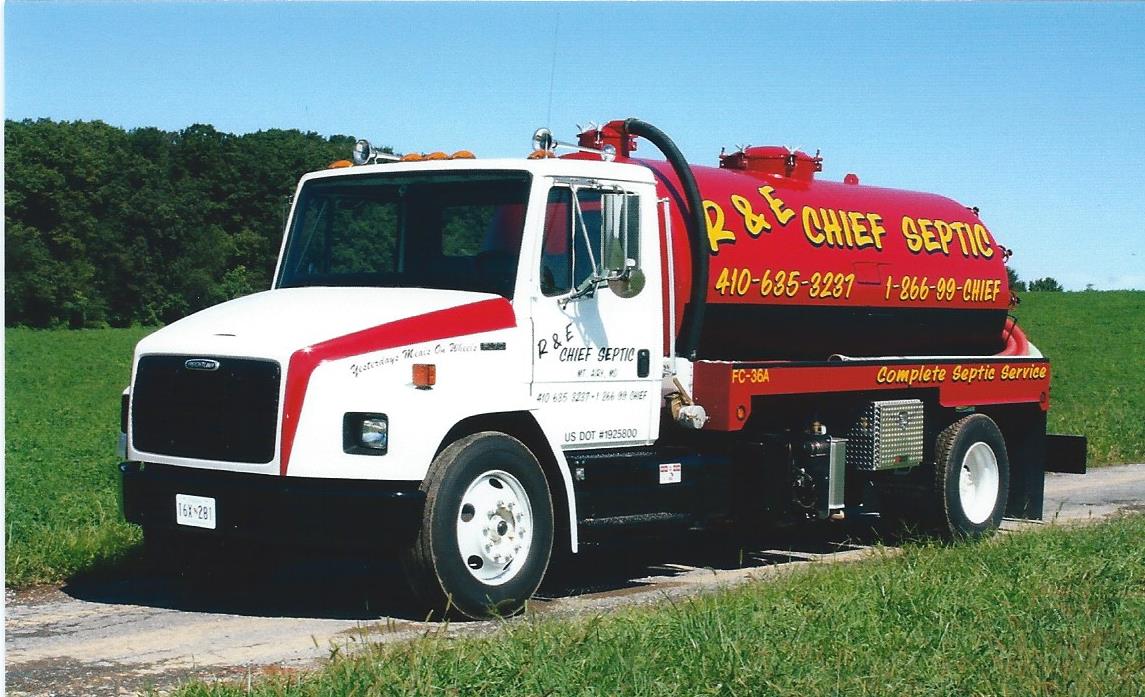
Get matched with top septic tank pros in Rockville, MD
Enter your zip and get matched with up to 5 pros
Need a pro for your septic tank service project in Rockville, MD?
TRUSTED BY ROCKVILLE, MD HOMEOWNERS
4.7
Average homeowner rating52
Verified septic tank services reviews
Verified Reviews for Septic Tank Service pros in Rockville, MD
*The Angi rating for Septic Tank Service companies in Rockville, MD is a rating based on verified reviews from our community of homeowners who have used these pros to meet their Septic Tank Service needs.
*The HomeAdvisor rating for Septic Tank Service companies in Rockville, MD is a rating based on verified reviews from our community of homeowners who have used these pros to meet their Septic Tank Service needs.
Last update on December 02, 2025
Find Septic tank pros in Rockville

Sila Heating, Cooling and Plumbing
Sila Heating, Cooling and Plumbing
Live Your Most Comfortable Life with a Company You Trust. We offer Same Day Service and Next Day Installation! Sila has been the center of delighting homeowners since 1989, with our team of engineers, certified technicians, and system designers that are proud to deliver the highest level of expertise in the HVAC industry. Whether it’s a repair, replacement, installation, or service, we have an unwavering commitment to keeping you and your family comfortable and safe — season after season. We guarantee satisfaction and are proud to have earned over 7,000 “A” ratings on Angie’s List and its prestigious Super Service Award!
"They charged $98 to come give me an estimate for swapping our a shower valve cartridge, which was fine, but the pricing they provided was completely unreasonable, $1,000. They were unwilling to provide any detail for the price. I ended up buy the part myself for $30 and replaced it in 30 minutes."
Tom A on October 2024
Live Your Most Comfortable Life with a Company You Trust. We offer Same Day Service and Next Day Installation! Sila has been the center of delighting homeowners since 1989, with our team of engineers, certified technicians, and system designers that are proud to deliver the highest level of expertise in the HVAC industry. Whether it’s a repair, replacement, installation, or service, we have an unwavering commitment to keeping you and your family comfortable and safe — season after season. We guarantee satisfaction and are proud to have earned over 7,000 “A” ratings on Angie’s List and its prestigious Super Service Award!
"They charged $98 to come give me an estimate for swapping our a shower valve cartridge, which was fine, but the pricing they provided was completely unreasonable, $1,000. They were unwilling to provide any detail for the price. I ended up buy the part myself for $30 and replaced it in 30 minutes."
Tom A on October 2024
Able Well & Pump Service
Able Well & Pump Service
About Us: We are locally owned/operated professionals providing dependable service. Able Well & Pump Service (AWPS) (formerly Artesian Well & Pump Service) has A Cell Number Also At 410 458 7171
"Able Well helped me perform a chemical treatment of my home well after it failed a bacteria test. They also replaced and rewired the well cap. They were knowledgeable about the system and taught me a lot of great info about my home system. The reason for 1-star is the complete lack of punctuality. They were 5 hours late on the first day and 4 hours late on the second date. No one ever reached out to me to let me know they would be late or communicated a need to change the time of the appointment. For how expensive the service was, I would expect better communication and ability to keep an appointment. I'd recommend shocking your well yourself, it isn't hard, and spending almost 10 hours waiting on arrival was a hard way to spend my day."
Colleen W on June 2025
About Us: We are locally owned/operated professionals providing dependable service. Able Well & Pump Service (AWPS) (formerly Artesian Well & Pump Service) has A Cell Number Also At 410 458 7171
"Able Well helped me perform a chemical treatment of my home well after it failed a bacteria test. They also replaced and rewired the well cap. They were knowledgeable about the system and taught me a lot of great info about my home system. The reason for 1-star is the complete lack of punctuality. They were 5 hours late on the first day and 4 hours late on the second date. No one ever reached out to me to let me know they would be late or communicated a need to change the time of the appointment. For how expensive the service was, I would expect better communication and ability to keep an appointment. I'd recommend shocking your well yourself, it isn't hard, and spending almost 10 hours waiting on arrival was a hard way to spend my day."
Colleen W on June 2025

R&E CHIEF SEPTIC LLC
R&E CHIEF SEPTIC LLC
We are a small family own business. Our services include Septic tank cleaning, repairs and installation and grease trap, cleaning, maintenance and small repairs.
"I got a call from R & E Chief Septic llc after contacting Angi’s List, they asked if I knew the location of the tank and I said yes but it was buried, the woman on the line said they would get the drawings from the county, that same day I got a call from Juan one of the employees and he said he was going to stop buy and mark the location, I was not home but when I got home I could see white flags in the yard. They also recommended installing an above ground cover for the next pump out. I got 2 more estimates and they were all higher and neither company offered to come out and mark the tank. We went with R & E Chief because of the great up front customer service. Need to give a shout out to Juan, Fredy and Paco they did an excellent job. And also the woman who answered the phone. So if you need septic work done, put this company at the top of your list. Ron Welch"
Ron W on November 2025
We are a small family own business. Our services include Septic tank cleaning, repairs and installation and grease trap, cleaning, maintenance and small repairs.
"I got a call from R & E Chief Septic llc after contacting Angi’s List, they asked if I knew the location of the tank and I said yes but it was buried, the woman on the line said they would get the drawings from the county, that same day I got a call from Juan one of the employees and he said he was going to stop buy and mark the location, I was not home but when I got home I could see white flags in the yard. They also recommended installing an above ground cover for the next pump out. I got 2 more estimates and they were all higher and neither company offered to come out and mark the tank. We went with R & E Chief because of the great up front customer service. Need to give a shout out to Juan, Fredy and Paco they did an excellent job. And also the woman who answered the phone. So if you need septic work done, put this company at the top of your list. Ron Welch"
Ron W on November 2025

Pohlman Plumbing Inc
Pohlman Plumbing Inc
Pohlman Plumbing is a local, family-owned and -operated full-service plumbing and HVAC company serving the Baltimore metro area. Founded in 2008, our professional and friendly customer service plus our top-notch skills have made us one of the most trusted local plumbers in Baltimore. When you choose to work with Pohlman Plumbing, you can have peace of mind knowing we always stand by the Pohlman Promise: fast service, at a fair price, and done right the first time.
"The gentleman that work this business go above and beyond to make the best suggestions for they work required. This is the second time I have hired them. My sub pump went after and more rain was coming they came out with 2 hours to fix the problem. Extremely professional man. I will be er use any other plumbing business other than Pohlman. I highly recommend if you have a plumping issue."
Georgette T on January 2024
Pohlman Plumbing is a local, family-owned and -operated full-service plumbing and HVAC company serving the Baltimore metro area. Founded in 2008, our professional and friendly customer service plus our top-notch skills have made us one of the most trusted local plumbers in Baltimore. When you choose to work with Pohlman Plumbing, you can have peace of mind knowing we always stand by the Pohlman Promise: fast service, at a fair price, and done right the first time.
"The gentleman that work this business go above and beyond to make the best suggestions for they work required. This is the second time I have hired them. My sub pump went after and more rain was coming they came out with 2 hours to fix the problem. Extremely professional man. I will be er use any other plumbing business other than Pohlman. I highly recommend if you have a plumping issue."
Georgette T on January 2024
Harley Drilling & Hydrofrac
Harley Drilling & Hydrofrac
Harley Drilling & Hydrofrac is committed to excellence in every aspect of our business. We uphold a standard of integrity bound by fairness, honesty, and personal responsibility. Our distinction is the quality of service we bring to our customers. Accurate knowledge of our trade combined with ability is what makes us true professionals. Above all, we are watchful of our customers' interests, and make their concerns the basis of our business.
"For all the years we have used him he has been excellent, very responsive, and I've never had any issues with him!"
ASM B on April 2020
Harley Drilling & Hydrofrac is committed to excellence in every aspect of our business. We uphold a standard of integrity bound by fairness, honesty, and personal responsibility. Our distinction is the quality of service we bring to our customers. Accurate knowledge of our trade combined with ability is what makes us true professionals. Above all, we are watchful of our customers' interests, and make their concerns the basis of our business.
"For all the years we have used him he has been excellent, very responsive, and I've never had any issues with him!"
ASM B on April 2020

Beacon Home Services, Inc.
Beacon Home Services, Inc.
Beacon Home Services is a family owned and operated electrical & plumbing contractor. Our experienced plumbers & electricians have been providing superior services to the Northern Virginia Area since 2002. Our Master technicians are fully licensed and have more than enough experience to insure your satisfaction with our services. We have proven our ability to satisfy customers by reinventing the service industry and putting customer service at the top of our list! Customer safety is also very important to Beacon Home Services. That's why all our employees have gone through background checks so you can be sure that you're in good hands with Beacon Home Services.
"he was on time. he answered all my questions. He handled everything. he cleaned up his working area. "
Jean W on November 2025
Beacon Home Services is a family owned and operated electrical & plumbing contractor. Our experienced plumbers & electricians have been providing superior services to the Northern Virginia Area since 2002. Our Master technicians are fully licensed and have more than enough experience to insure your satisfaction with our services. We have proven our ability to satisfy customers by reinventing the service industry and putting customer service at the top of our list! Customer safety is also very important to Beacon Home Services. That's why all our employees have gone through background checks so you can be sure that you're in good hands with Beacon Home Services.
"he was on time. he answered all my questions. He handled everything. he cleaned up his working area. "
Jean W on November 2025

Mr. Rooter of Maryland
Mr. Rooter of Maryland
Dealing with a busted toilet? Can't seem to unclog that drain? It's time to call on your local Mr. Rooter® Plumbing. Since 1968 our full service residential and commercial plumbers have been available around-the-clock to tackle your plumbing service needs! We never charge extra, always stand behind our work, and provide upfront pricing so you know exactly what you are paying for ahead of time. You can count on our plumbers to deliver fast, affordable, and reliable plumbing services throughout the state of Maryland. Call us today, we look forward to serving you for years to come!
"great job "
Kevin S on November 2025
Dealing with a busted toilet? Can't seem to unclog that drain? It's time to call on your local Mr. Rooter® Plumbing. Since 1968 our full service residential and commercial plumbers have been available around-the-clock to tackle your plumbing service needs! We never charge extra, always stand behind our work, and provide upfront pricing so you know exactly what you are paying for ahead of time. You can count on our plumbers to deliver fast, affordable, and reliable plumbing services throughout the state of Maryland. Call us today, we look forward to serving you for years to come!
"great job "
Kevin S on November 2025

Brian B Quick
Brian B Quick
Brian B Quick s a well established company in the Washington DC and Baltimore region. We offer over 100 years of experience total on our Team. Our business approach is to make clients lives better; one solution at a time. We have over 50 5 star reviews! Our focus is customer service as well as professionalism. We pride ourselves on integrity at all times. We are a 4th generation Master Plumbing company! No other company can make that claim in the DC Metro area! Call us for your next job; you will not be disappointed.
"fantastic ! did a great job polite"
Jim I on September 2022
Brian B Quick s a well established company in the Washington DC and Baltimore region. We offer over 100 years of experience total on our Team. Our business approach is to make clients lives better; one solution at a time. We have over 50 5 star reviews! Our focus is customer service as well as professionalism. We pride ourselves on integrity at all times. We are a 4th generation Master Plumbing company! No other company can make that claim in the DC Metro area! Call us for your next job; you will not be disappointed.
"fantastic ! did a great job polite"
Jim I on September 2022

Len The Plumber Heating & Air, LLC
Len The Plumber Heating & Air, LLC
Len The Plumber, LLC. is a leading plumbing and drain company serving Maryland and Washington D.C. Our certified professional plumbers are available same day to assist residential customers in Charles County, Montgomery County, Prince George’s County, and Washington D.C. Our knowledgeable plumbers have years of experience dealing with a wide variety of plumbing issues including plumbing repairs, drain cleaning, water heaters, well systems, heating systems, sewer, water, and gas lines. We’re open 7 days a week with no extra charge on evenings or weekends!
" I was actually really shocked that the lady was so unprofessional because that's a pretty big plumbing company in our area. But she started over-talking me. I mean, she was so rude when I was telling her that this is not the way to speak to a customer, she hung up the phone. "
Tiffani N on November 2025
Len The Plumber, LLC. is a leading plumbing and drain company serving Maryland and Washington D.C. Our certified professional plumbers are available same day to assist residential customers in Charles County, Montgomery County, Prince George’s County, and Washington D.C. Our knowledgeable plumbers have years of experience dealing with a wide variety of plumbing issues including plumbing repairs, drain cleaning, water heaters, well systems, heating systems, sewer, water, and gas lines. We’re open 7 days a week with no extra charge on evenings or weekends!
" I was actually really shocked that the lady was so unprofessional because that's a pretty big plumbing company in our area. But she started over-talking me. I mean, she was so rude when I was telling her that this is not the way to speak to a customer, she hung up the phone. "
Tiffani N on November 2025

Roto-Rooter Plumbing & Water Cleanup
Roto-Rooter Plumbing & Water Cleanup
When you need an emergency plumber or a drain cleaner, call Roto-Rooter Plumbing & Water Cleanup. Your fast & reliable plumber can fix any plumbing problem, including sump pumps, toilet repair, faucet repair, faucet replacement, garbage disposals, water heaters, bathtubs, showers, and outside faucets. Roto-Rooter is best known for drain cleaning & sewer cleaning. We fix drain clogs, clogged toilets or sinks, blockage of main sewer lines, slow draining shower and bathtub drains, sewer lines and leaking or burst pipes. We also specialize in water damage restoration & water cleanup services. We can fix and clean up your flooded basement too. Roto-Rooter is a 24-hour plumber near you and provides emergency service.
"Installation was solid. The labor price was a bit high. The main concern was the materials markup. The picked up a shower stem from Lowes. Those are normally about $50. The tech said that the stem wasn't $120 but they charge them extra when they use their contractor code. That seemed weird since normally get discounts since they purchase a lot. I should have questioned it but it didn't register to me until after he had left."
Rodney M on November 2024
When you need an emergency plumber or a drain cleaner, call Roto-Rooter Plumbing & Water Cleanup. Your fast & reliable plumber can fix any plumbing problem, including sump pumps, toilet repair, faucet repair, faucet replacement, garbage disposals, water heaters, bathtubs, showers, and outside faucets. Roto-Rooter is best known for drain cleaning & sewer cleaning. We fix drain clogs, clogged toilets or sinks, blockage of main sewer lines, slow draining shower and bathtub drains, sewer lines and leaking or burst pipes. We also specialize in water damage restoration & water cleanup services. We can fix and clean up your flooded basement too. Roto-Rooter is a 24-hour plumber near you and provides emergency service.
"Installation was solid. The labor price was a bit high. The main concern was the materials markup. The picked up a shower stem from Lowes. Those are normally about $50. The tech said that the stem wasn't $120 but they charge them extra when they use their contractor code. That seemed weird since normally get discounts since they purchase a lot. I should have questioned it but it didn't register to me until after he had left."
Rodney M on November 2024
The Rockville, MD homeowners’ guide to septic tank services
From average costs to expert advice, get all the answers you need to get your job done.

Need to know what sewer line replacement costs in Austin, TX? This guide will help you prepare to budget for sewer line replacement done by local contractors.

Need to know what sewer line replacement costs in Columbus, OH? This guide will help you prepare to budget for sewer line replacement done by local contractors.

How much does a septic system cost? Explore impacting factors, important add-ons, and how you can save money on septic system installation right here.

Need to know what sewer line replacement costs in Dallas, TX? This guide will help you prepare to budget for sewer line replacement done by local contractors.

How long do septic tanks last? It’s a valid question for those who have one. The answer is it varies between 15 and 50 years, depending on several factors.

Odor problems in the laundry room? We discuss why your washing machine smells like sewage and how to fix those stinky plumbing issues.
- Travilha, MD Septic tank pros
- North Bethesda, MD Septic tank pros
- Washington Grove, MD Septic tank pros
- Redland, MD Septic tank pros
- North Potomac, MD Septic tank pros
- Derwood, MD Septic tank pros
- Potomac, MD Septic tank pros
- Garrett Park, MD Septic tank pros
- Aspen Hill, MD Septic tank pros
- Gaithersburg, MD Septic tank pros
- Montgomery Village, MD Septic tank pros
- Darnestown, MD Septic tank pros
- Kensington, MD Septic tank pros
- Olney, MD Septic tank pros
- Wheaton, MD Septic tank pros
- Glenmont, MD Septic tank pros
- Bethesda, MD Septic tank pros
- Cabin John, MD Septic tank pros
- Silver Spring, MD Septic tank pros
- Germantown, MD Septic tank pros
- Glen Echo, MD Septic tank pros
- Forest Glenn, MD Septic tank pros
- Chevy Chase, MD Septic tank pros
- Kemp Mill, MD Septic tank pros
- Somerset, MD Septic tank pros
- Sandy Spring, MD Septic tank pros
- Great Falls, VA Septic tank pros
- Colesville, MD Septic tank pros
- White Oak, MD Septic tank pros
- Mclean, VA Septic tank pros



